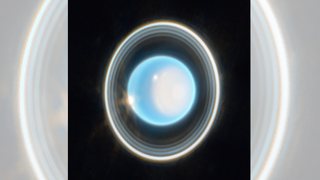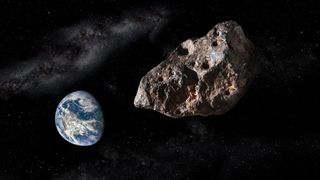
Brandon Specktor
Brandon is the space / physics editor at Live Science. With more than 20 years of editorial experience, his writing has appeared in The Washington Post, Reader's Digest, CBS.com, the Richard Dawkins Foundation website and other outlets. He holds a bachelor's degree in creative writing from the University of Arizona, with minors in journalism and media arts. His interests include black holes, asteroids and comets, and the search for extraterrestrial life.
Latest articles by Brandon Specktor
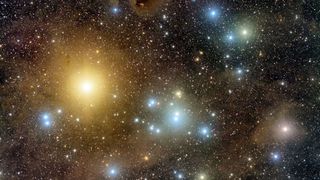
The closest black holes to Earth may be lurking in a star cluster visible to the naked eye
By Brandon Specktor published
Astronomers found evidence of multiple stellar-mass black holes lurking in the nearby Hyades cluster, just 150 light-years from Earth.
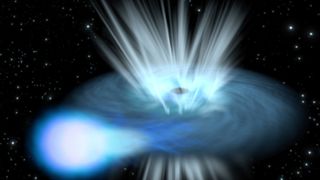
Astronomers discover new class of cosmic explosion brighter than 100 billion suns
By Brandon Specktor published
Dubbed 'Luminous Fast Coolers,' this new class of extreme cosmic explosion is incredibly rare — and unbelievably bright.
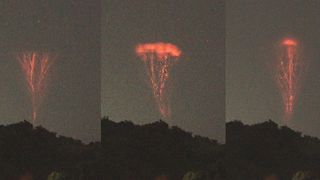
Photographer captures rare 'gigantic jets' of upside-down lightning blasting out of Atlantic hurricane
By Brandon Specktor published
Gigantic jets, which are 50 times more powerful than typical lightning bolts and can reach the edge of space, were seen erupting out of Hurricane Franklin near Puerto Rico.
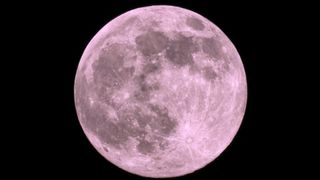
15 incredible images of Earth's moon
By Annie Corinne Shaink published
See Earth's ancient companion like never before with this gallery of incredible satellite, telescope and lunar orbiter images of the moon.
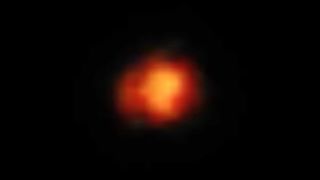
13 billion-year-old 'Maisie's galaxy' is one of the oldest objects in the universe, James Webb telescope reveals
By Brandon Specktor published
Born less than 400 million years after the Big Bang, Maisie's galaxy is officially one of the four oldest galaxies ever discovered, a new JWST study reveals.
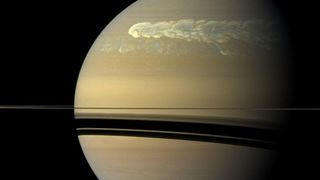
100-year-long 'megastorms' on Saturn are creating radio signals that scientists can't fully explain
By Brandon Specktor published
Gargantuan storms on Saturn can wrap around the entire planet and be seen for months. New research suggests their impacts persist hundreds of years longer than experts thought.
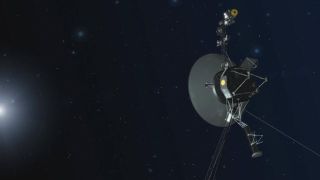
NASA reestablishes full contact with Voyager 2 probe after nail-biting 2-week blackout
By Brandon Specktor last updated
After accidentally shifting Voyager 2's antenna by two degrees, NASA fell out of contact with the interstellar probe on July 21. On Aug. 4, the agency succesfully reset the probe's antenna, restoring communications.
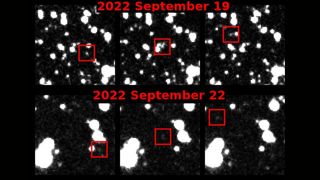
'Potentially hazardous' 600-foot asteroid detected near Earth after a year of hiding in plain sight
By Brandon Specktor published
A skyscraper-size asteroid was revealed in year-old telescope data thanks to a new algorithm that could rock the way near-Earth objects are discovered.

NASA hears 'heartbeat' signal from Voyager 2 probe a week after losing contact
By Brandon Specktor published
NASA engineers have received a "heartbeat" signal from Voyager 2, bringing hope that they may be able to reestablish contact with the probe months ahead of schedule.
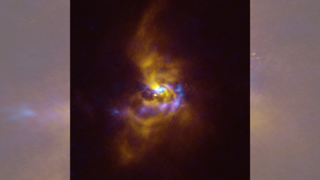
A new, Jupiter-size planet is on the verge of being born, and astronomers have incredible images of it
By Brandon Specktor published
A gorgeous new image of a star system 5,000 light-years from Earth could finally explain how Jupiter-size planets are born from chaotic fields of gas.

Master copy of the Voyager Golden Record, designed as an audio postcard for intelligent aliens, is up for auction
By Brandon Specktor published
Carl Sagan's personal copy of the Voyager Golden Record contains 27 pieces of music and 22 minutes of sound meant to capture the beauty of life on Earth.
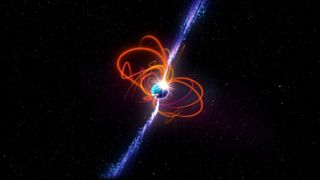
Ultrabright stellar object is shining beyond the 'death line,' and no one can explain it
By Brandon Specktor published
A slowly rotating, ultrabright object 15,000 light-years from Earth defies every logical explanation that astronomers have thrown at it.
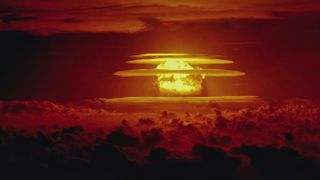
The 10 biggest explosions in history
By Charles Q. Choi last updated
Explosions, both natural and man-made, have caused awe and terror for centuries. Here are 10 of the biggest recorded blasts.
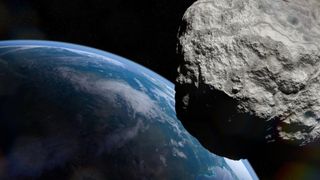
A skyscraper-size asteroid flew closer to Earth than the moon — and scientists didn't notice until 2 days later
By Brandon Specktor published
A stealthy asteroid the size of a 20-story building hid in the sun's glare before zooming uncomfortably close to Earth on July 13. Scientists didn't notice until July 15.
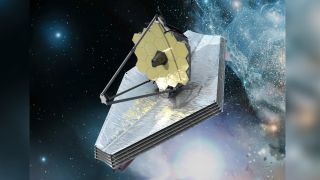
James Webb Space Telescope: Origins, design and mission objectives
By Andrew May last updated
Reference NASA's James Webb Space Telescope has launched and it's the most powerful in history, giving us the deepest ever view into our universe.
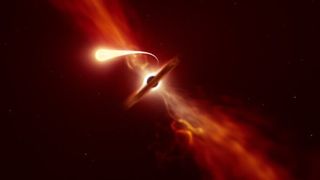
Gargantuan black hole 'switches on,' becoming one of the brightest objects ever seen
By Brandon Specktor published
A black hole 10 billion light-years away suddenly 'switched on', becoming one of the brightest transient objects ever detected.

13 horrific firework injuries that will keep you cautious on July 4
By Brandon Specktor published
As July Fourth celebrations take off across the U.S., so will the number of firework-related accidents and hospital visits.

See the 'monster' sunspot that launched the Carrington Event, the most devastating solar storm in recorded history
By Brandon Specktor published
What did the sun look like before the devastating 1859 Carrington Event? Sketches from astronomer Richard Carrington hold the answer.

How to watch a 'potentially hazardous' asteroid the size of Earth's tallest building zoom past the planet Sunday
By Brandon Specktor published
A large, skyscraper-size asteroid will pass close to Earth Sunday night (June 11), missing our planet by a few million miles.
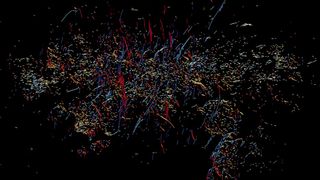
Hundreds of ancient, invisible structures discovered near our galaxy's center
By Brandon Specktor published
Radio astronomers have discovered hundreds of long, thin structures emanating from our galaxy's supermassive black hole.
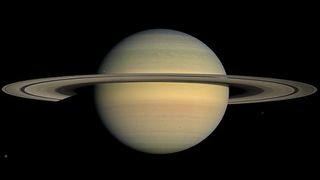
Scientists discover 62 new moons around Saturn, raising total to 145 — the most in the solar system
By Brandon Specktor published
The discovery of 62 'irregular' moons orbiting Saturn brings the planet’s total to 145 — and hints at a chaotic past.
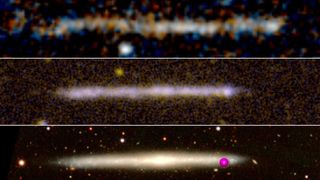
'Runaway black hole,' or sneaky galaxy in disguise? Experts are conflicted.
By Joanna Thompson published
A rogue black hole may not be to blame for a mysterious streak of stars coursing through space, a new study suggests.
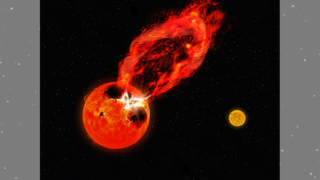
Gargantuan 'superflare' from distant star may have launched one of the strongest solar storms ever seen
By Brandon Specktor published
Scientists studying a star system in Orion witnessed one of the most powerful stellar eruptions ever seen — and it could be devastating to nearby planets.
Get the world’s most fascinating discoveries delivered straight to your inbox.
